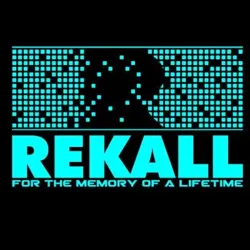

An excellent return on the $99 spent. :)
Rekall is a company that provides memory implants of vacations, where a client can take a memory trip to a certain planet and be whoever they desire.


An excellent return on the $99 spent. :)


Funny to see a YT-style video from 1995.
I was curious about Yggdrasil and I found this little piece of history on Wikipedia:
A beta release was made on 18 February 1993.[4][7] The beta’s cost was US$60. LGX’s beta release in 1993 contained the 0.99.5 version of the Linux kernel, along with other software from GNU and X.[7] By 22 August 1993, the Yggdrasil company had sold over 3100 copies of the LGX beta distribution.[8]
Yggdrasil made $186,000 selling CDs with a beta version. Making CDs was probably much more expensive back then, but I am sure they got a volume discount for a run of ~3,000 units.
The release version was $99!


I tried OrganicMaps, but it was noticeably less usable than Google Maps.
When you actually need maps on mobile, UX issues and jank becomes extremely annoying.


BcacheFS seems to have been released around ~2019 and it’s still alpha?
One thing you don’t want to fuck around with is your file system. It’s one area of computing where conservatism is paramount.


!monitors@lemm.ee has migrated to !monitors@piefed.social
Haven’t used Kubuntu so can’t help you with that.
Regarding installing application from 3rd parties, there is no guaranteed way to know that what you’re installing is clean.
That being said, I would argue basic evaluations (how long has the project been around, does it get mentioned a lot in articles and forums, are there a lot of star and activity on the guthub page?) should be good enough for regular operational security.
One other general tip, try using Gemini (the LLM by Google) for real-time support and explanations around Kubuntu. I find it helpful for guidance on complex applications (ones that are far more niche than Kubuntu).